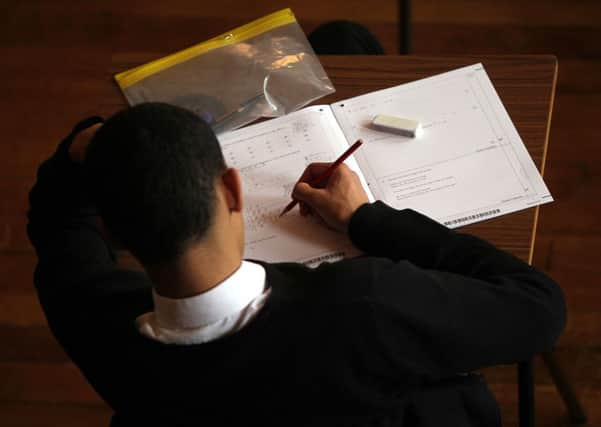North Yorkshire among only six areas '˜suitable for grammar schools'


The Education Policy Institute tested areas against four criteria, which it called “consistent” with the “principles” laid out in the Government’s “schools that work for everyone” consultation.
It looked for local authorities made up of a significant number of areas where new or expanded grammar schools would: not be to the detriment of pupils who do not attend the school; not undermine existing high performing non-selective schools; be in high demand from parents; and have enough pupils attending within a reasonable travel distance.
Advertisement
Hide AdAdvertisement
Hide AdThe education think tank analysed the 152 local authorities in England to find which ones would fill the four criteria, and found only six fit the bill.
As well as North yorkshire, they were Solihull, Essex, Dorset, Northamptonshire and North Somerset.
The report concluded that if the Government wants to use the set of tests laid out by the institute, they will find creating new grammar school places challenging.
It added: “Expanding existing grammar schools is likely in a majority of such areas to reduce the average attainment of disadvantaged pupils and is therefore unlikely to improve social mobility.”
Advertisement
Hide AdAdvertisement
Hide AdThe think tank suggested: “A more promising approach in the most disadvantaged and low attaining areas may therefore be to focus on increasing the quality of existing non-selective school places.”
Dr Mary Bousted, general secretary of the Association of Teachers and Lecturers, said: “Once again the Education Policy Institute have come up with the right questions about the Government’s desire to increase grammar schools. The answers in their report must make uncomfortable reading for ministers.
“Faced with the overwhelming evidence, from international sources, from research and from the evidence of the current effects of selection in England, a government interested in evidence based policy would back off from a bad idea.”
A spokesman for the Department for Education said: “This report is highly speculative. We held a consultation to help us establish how we can create more good school places for children of all backgrounds by removing the ban on grammar schools and this report is a crude attempt to second guess what that consultation will conclude.
Advertisement
Hide AdAdvertisement
Hide Ad“Independent organisations have recognised the transformative impact grammar schools can have on the lives of disadvantaged young people.
“Our consultation closes on December 12 and we look forward to considering all the responses.”